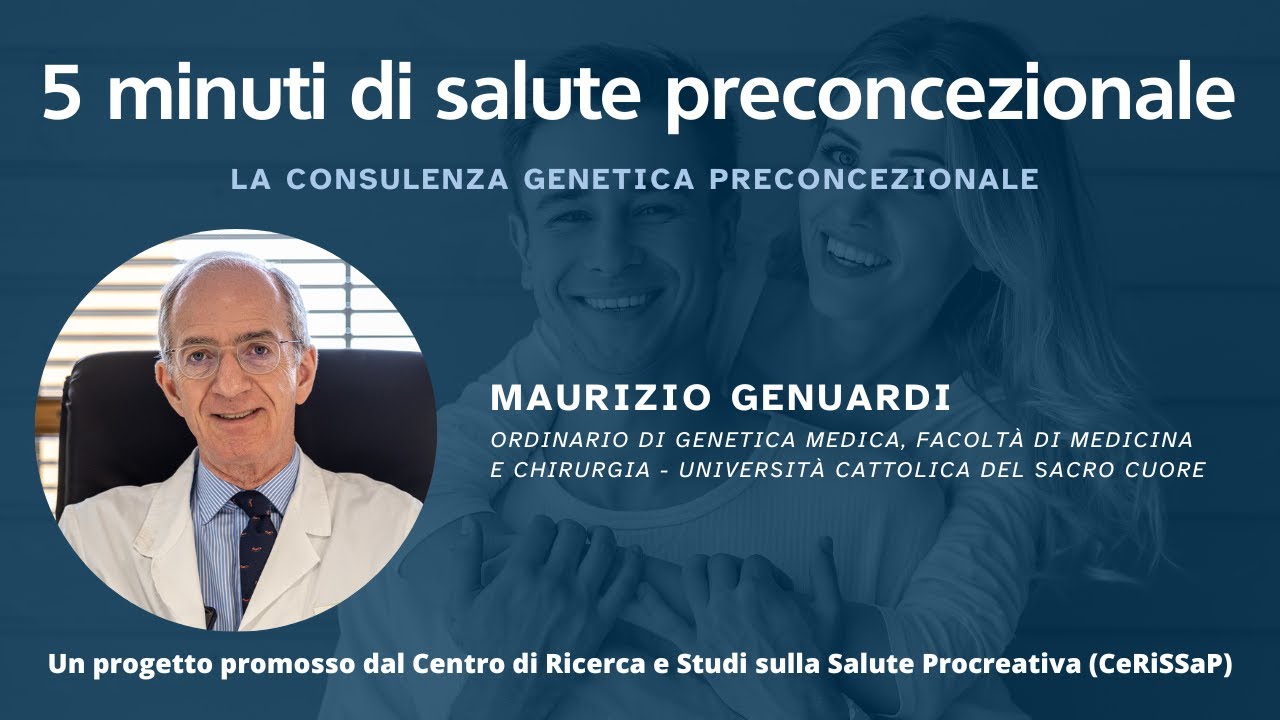Preconception genetic counseling
All pregnancies present the risk of birth defects or significant genetic diseases, which can occur within the first years of life. The so-called "species" risk is estimated at around 3%. A significant share of these problems is linked to genetic defects. The role of the gynecologist and, consequently, of the geneticist is to communicate the risks and explain how these defects cause problems for the unborn child. It is necessary to accompany the couple on this path, also because little-known, complex investigations may be necessary, which take time and whose answers are often not unequivocal.
Preconception genetic counseling can help to address and understand the possible risks and the tests that can be carried out and, above all, the risks of the most invasive procedures such as amniocentesis and chorionic villus sampling, which are increasingly used today. Preconception genetic counseling also gives the opportunity to reconstruct the family history to see if there are any elements that represent a potential increase in risk. All this outside of an emergency situation.
In principle, specific preconception genetic tests are not necessary, except for those for general genetic diseases (ad.es microcythemia, cystic fibrosis).
It is important to know that today there are also extended tests available that make it possible to identify the presence of genetic alterations associated with diseases that are transmitted as an autosomal recessive trait, i.e. diseases for which we can identify the risk a priori by analyzing the parents. There are hundreds and hundreds of these diseases. We can analyze the DNA of the parents and see if both are carriers of the same genetic defect and in this case they would have a high risk of having a child affected by the disease. This can then be verified in pregnancy by prenatal diagnosis.
It is essential to act as soon as possible: this is why the information given before pregnancy, in the preconception period, is important in order to deal with everything in the best possible way.
Leggi anche
-
Climate change and birth rateClimate change and fertility; A general topic for a particular problem that is still little studied and little investigated. We are all realizing how much climate change impacts our lives and how necessary it is to stem it, but few have carried out an analysis of the correlation between this phenomenon and the ability to procreate. We talk about it with Prof. Walter Ricciardi.
-
Welfare and birth rateThe Welfare State, developed since the nineteenth century to mitigate social risks such as unemployment and illness, has contributed significantly to the lengthening of the average life expectancy and to the change in the role of women in society. This change has influenced the traditional view of the family and has made it more difficult for women to reconcile work and family, also affecting historical birth rates. Prof. Gilberto Turati explains the current situation and the dynamics underlying it.
-
Andrological preventionWhen we talk about andrological prevention, we are probably entering a field unknown to many. Contrary to what happens for the female counterpart. In fact, the average age of the first gynecological examination is 15 years, unlike what happens in males where the first andrological specialist check-up often comes at a much older age, at the onset of clinical symptoms or when trying to get pregnant. Why is prevention important in the andrological field? This is what Dr. Carmine Bruno explains.
